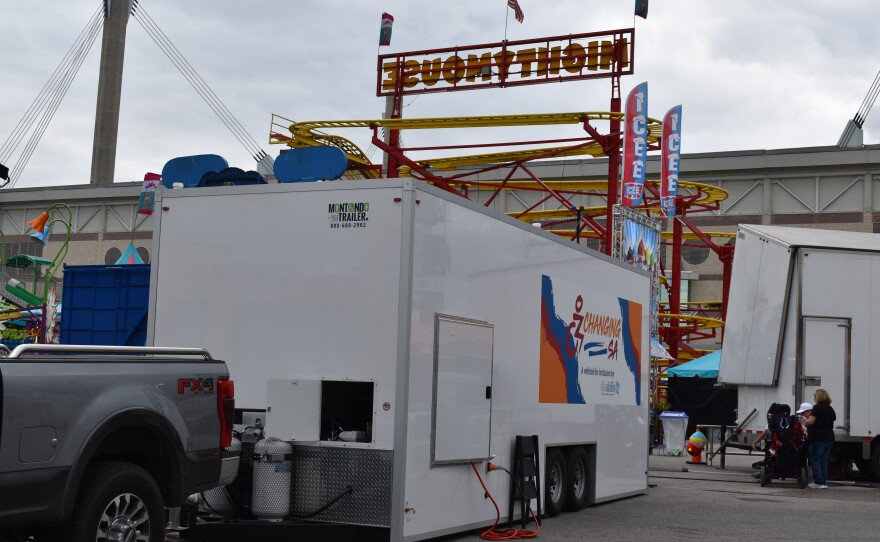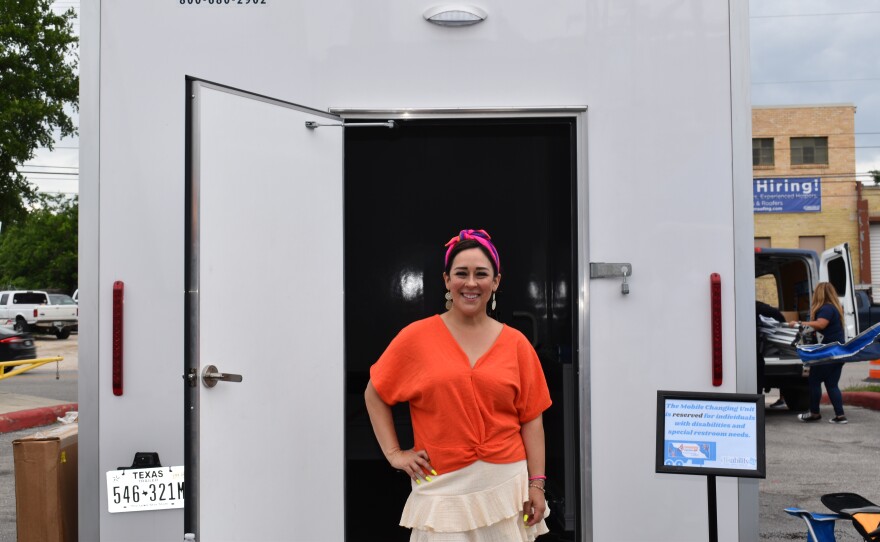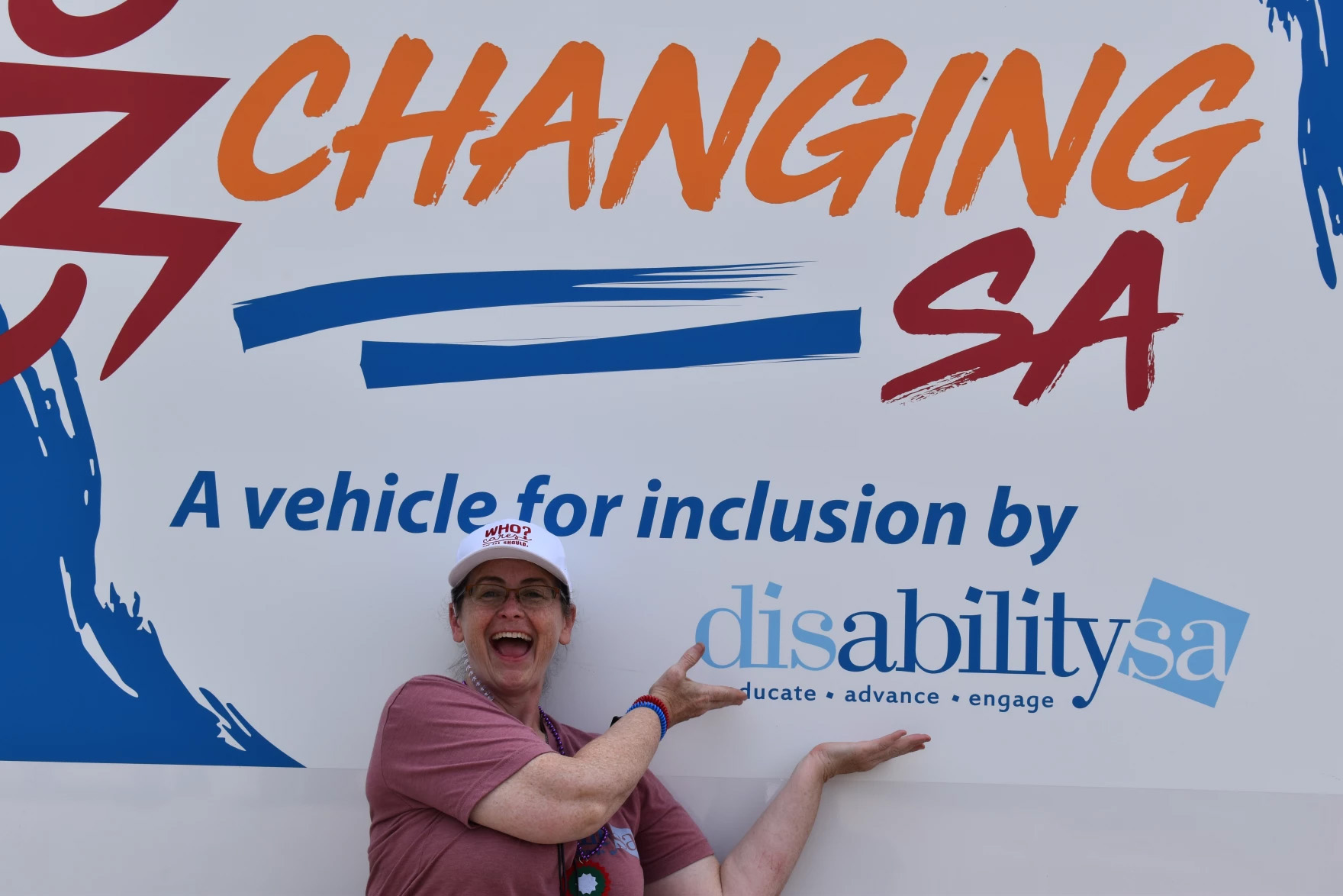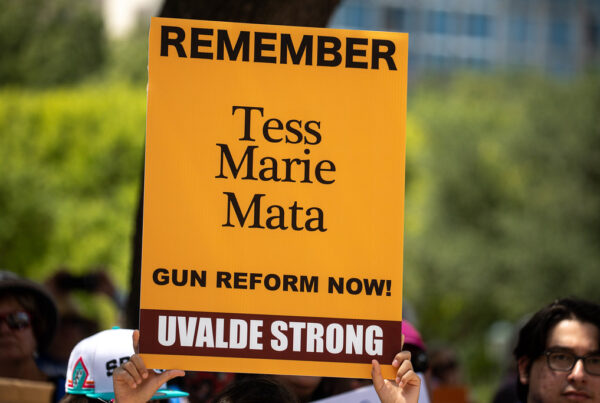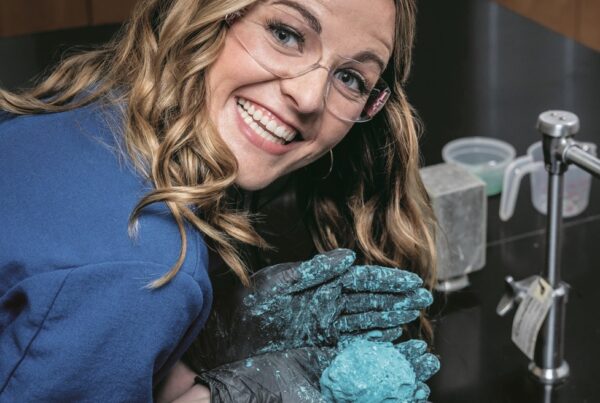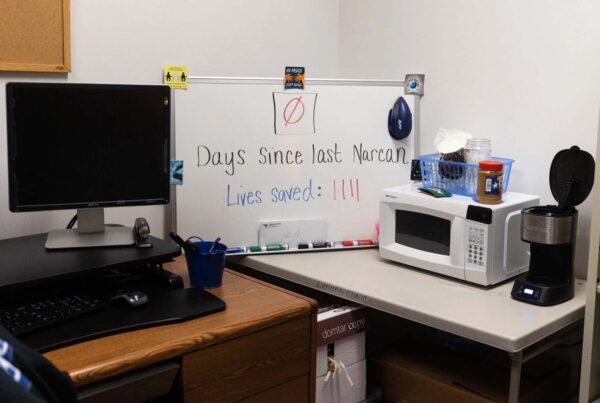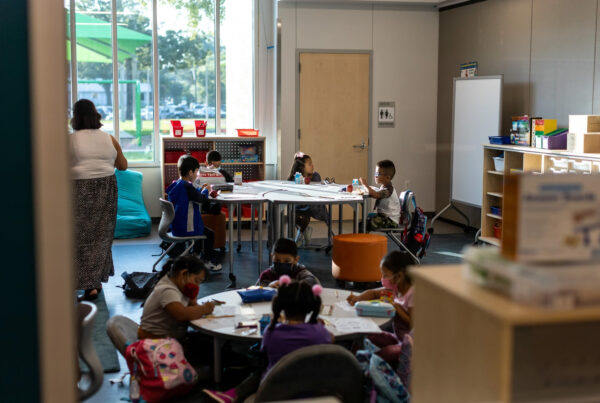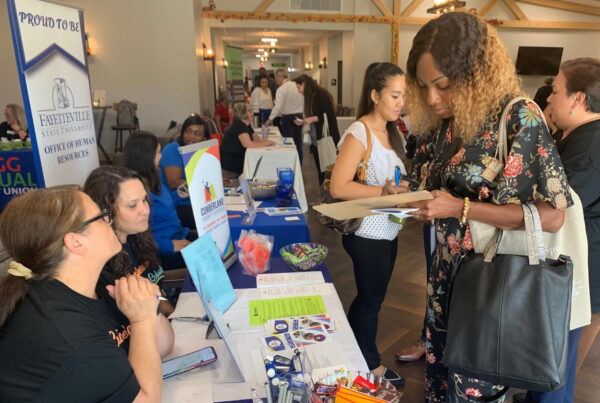From Texas Public Radio:
The need for accessible public restrooms for people with disabilities is crucial. Standard bathrooms don’t offer things like low changing tables for people with incontinence issues. This barrier for the disabled often leaves many of them feeling isolated.
But that soon won’t be the case thanks to two nonprofit organizations that have made San Antonio a trailblazer for the nation.
Traci Lewand understands more than most the need for a specialized bathroom for people like her son, Mason — a surviving twin with multiple disabilities.
“Mason was getting older,” she said. “I realized that one of the challenges that we were facing — primarily myself, because I’m 5’2″ on a good day — was that he was going to be taller than me rather quickly, and I was running out of spaces that I could change him when we were out in public together, so I was utilizing park benches and chairs put together or … myself and one of our daughters spreading him out across our laps. And so that made it really difficult.”


